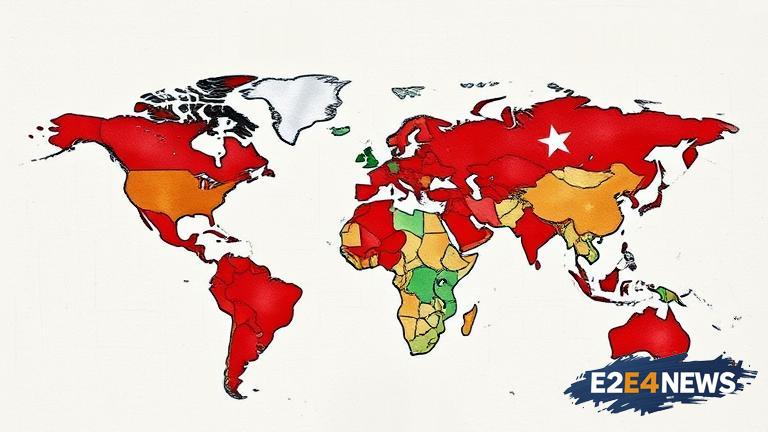The Australian government is considering recognizing Palestine as a sovereign state, following in the footsteps of Canada, the United Kingdom, and France. This move is seen as a significant shift in the country’s foreign policy and a major breakthrough for the Palestinian cause. The recognition of Palestinian statehood has been a long-standing demand of the Palestinian people and is considered a crucial step towards achieving a two-state solution. The Australian government’s decision is expected to be announced in the coming weeks, and it is likely to be met with widespread support from the international community. The move is also seen as a response to the growing frustration with the Israeli government’s expansion of settlements in the West Bank and its refusal to engage in meaningful peace talks. The recognition of Palestinian statehood is not only a moral imperative but also a strategic necessity, as it would help to promote stability and security in the region. The Australian government’s decision is expected to be welcomed by the Palestinian Authority, which has been seeking international recognition for decades. The move is also likely to be supported by the Arab League and other regional organizations, which have long advocated for Palestinian statehood. However, the Israeli government is likely to oppose the move, citing concerns about security and the need for a negotiated settlement. Despite these concerns, the recognition of Palestinian statehood is seen as a necessary step towards achieving a lasting peace in the region. The Australian government’s decision is also expected to have significant implications for the country’s relations with Israel and the Palestinian Authority. The move is likely to be seen as a major breakthrough for the Palestinian cause and a significant shift in the regional balance of power. The recognition of Palestinian statehood is also expected to have significant economic implications, as it would allow the Palestinian Authority to access international aid and investment. The move is also likely to have significant cultural and social implications, as it would help to promote Palestinian identity and self-determination. The Australian government’s decision is expected to be widely welcomed by the international community, including the United Nations, the European Union, and other regional organizations. The recognition of Palestinian statehood is seen as a major step towards achieving a two-state solution, which is widely regarded as the only viable solution to the Israeli-Palestinian conflict. The move is also expected to have significant implications for the regional security architecture, as it would help to promote stability and security in the region. The Australian government’s decision is likely to be seen as a major breakthrough for the Palestinian cause and a significant shift in the regional balance of power. The recognition of Palestinian statehood is also expected to have significant implications for the country’s relations with other countries in the region, including Iran, Turkey, and the Gulf states. The move is likely to be seen as a major step towards promoting peace and stability in the region, and it is expected to be widely welcomed by the international community. The Australian government’s decision is also expected to have significant implications for the country’s domestic politics, as it would likely be seen as a major achievement for the government and a significant shift in the country’s foreign policy. The recognition of Palestinian statehood is seen as a necessary step towards achieving a lasting peace in the region, and it is expected to be widely welcomed by the international community.
